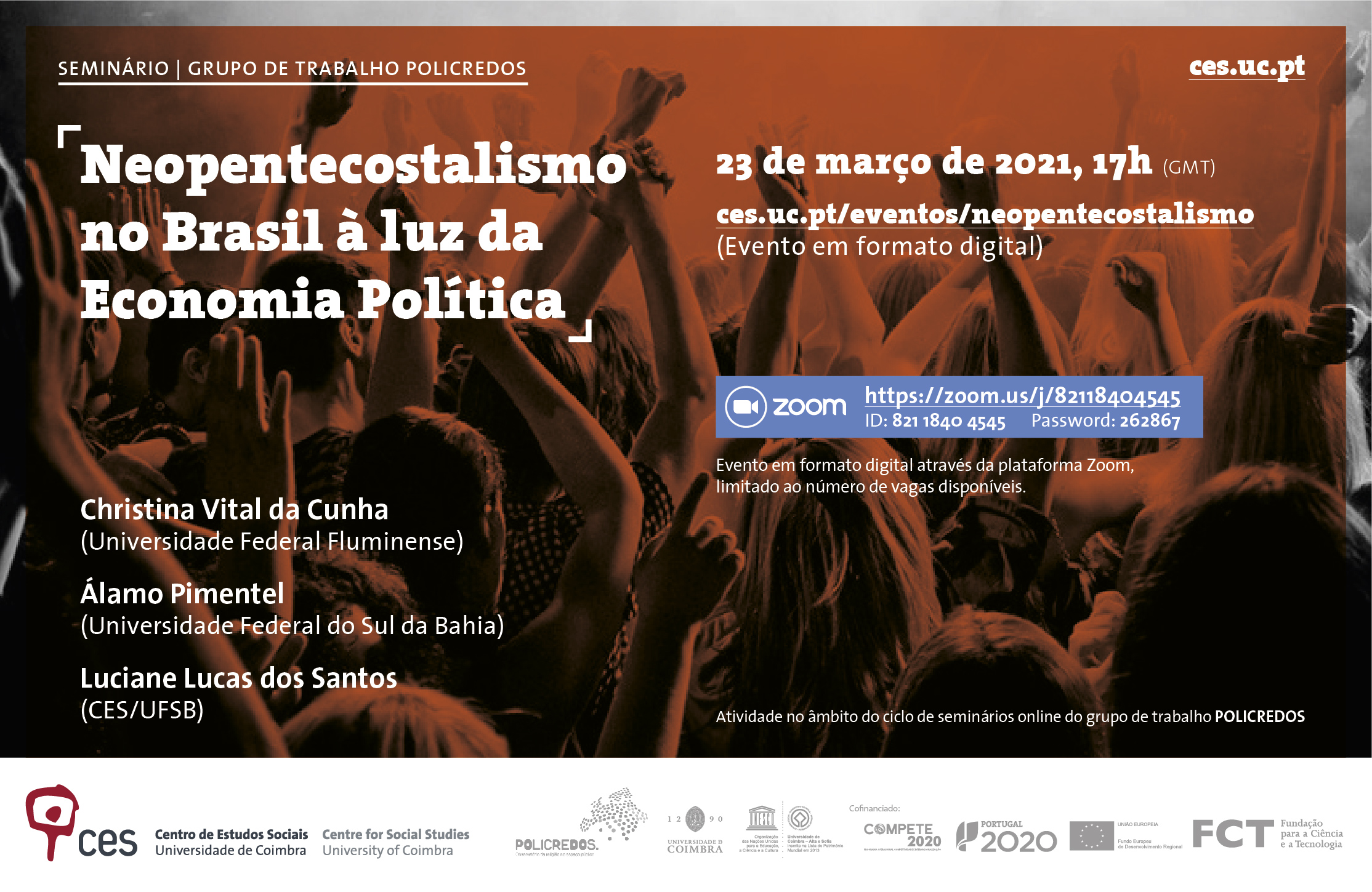SEMINÁRIO | GRUPO DE TRABALHO POLICREDOS
Neopentecostalismo no Brasil à luz da Economia Política
Álamo Pimentel
Christina Vital da Cunha
Luciane Lucas dos Santos
23 de março de 2021, 17h00 (GMT)
Evento em formato digital
Apresentação
O avanço da extrema-direita constitui uma agenda política que se espalha por todo o mundo. Em alguns contextos, como no caso do Brasil, esta agenda se fortalece a partir do crescimento das diversas igrejas evangélicas pentecostais e neopentecostais no País, com uma presença cada vez mais acentuada no cenário político nacional e respetiva influência nos temas de género, saúde, economia, direitos humanos, educação. Esta pressão se faz sentir mais e mais à medida que ocorre uma transição religiosa no país. Segundo dados do último censo, há hoje cerca de 42,3 milhões de evangélicos/as no Brasil, o que corresponde à 22,2% da população brasileira. Segundo dados do IBGE, 14 mil novas igrejas são abertas anualmente no país.
O quarto seminário online do Policredos irá versar sobre a interface entre religião, política e género no contexto brasileiro. Buscaremos debater três aspetos: 1) o retrocesso nas políticas de igualdade de género e os constrangimentos das mulheres em seus direitos a partir da evocação de uma ‘ideologia de género’ a evitar que colocaria em causa a família e a juventude 2) o retrocesso nas políticas de educação, com afetação direta nos conteúdos pedagógicos e nas pautas progressistas que ocorreram neste campo; 3) a mudança na economia destas igrejas, com atenção à denúncia de sua presença cada vez maior no tráfico de drogas em cidades como o Rio de Janeiro. Chamamos a atenção, portanto, para a necessidade de uma economia política do neopentecostalismo, analisando-se os seus efeitos sobre a educação, a equidade de género, a economia e a política no âmbito da sociedade brasileira.
___________________________
Esta atividade realiza-se através da plataforma Zoom, sem inscrição obrigatória. No entanto, está limitada ao número de vagas disponíveis.
https://us02web.zoom.us/j/82118404545?pwd=cUhZRUJjUlRDNEQ2Zm9hTWxOUHY4Zz09
ID da reunião: 821 1840 4545 | Senha de acesso: 262867
Agradecemos que todas/os as/os participantes mantenham o microfone silenciado até ao momento do debate. A/O anfitriã/ão da sessão reserva-se o direito de expulsão da/o participante que não respeite as normas da sala.
As atividades abertas dinamizadas em formato digital, como esta, não conferem declaração de participação uma vez que tal documento apenas será facultado em eventos que prevejam registo prévio e acesso controlado.


